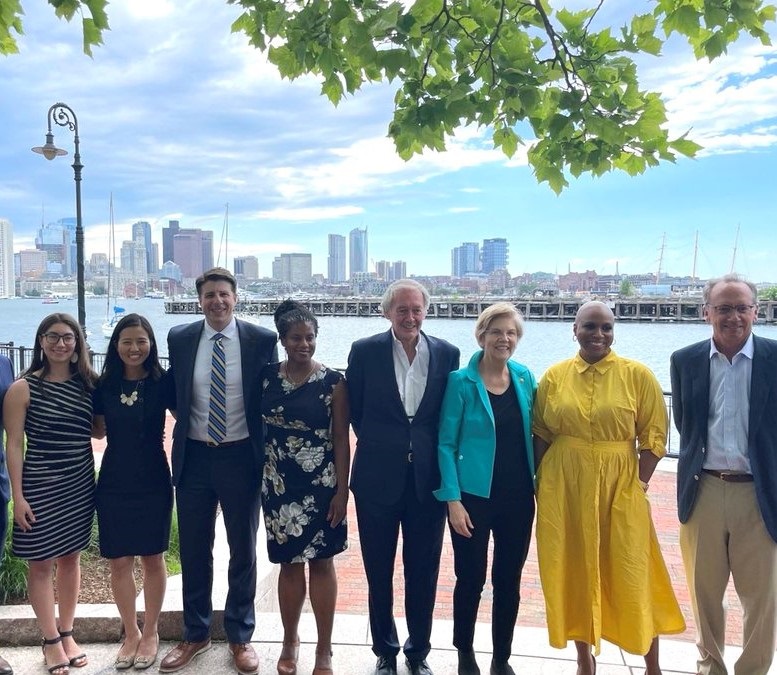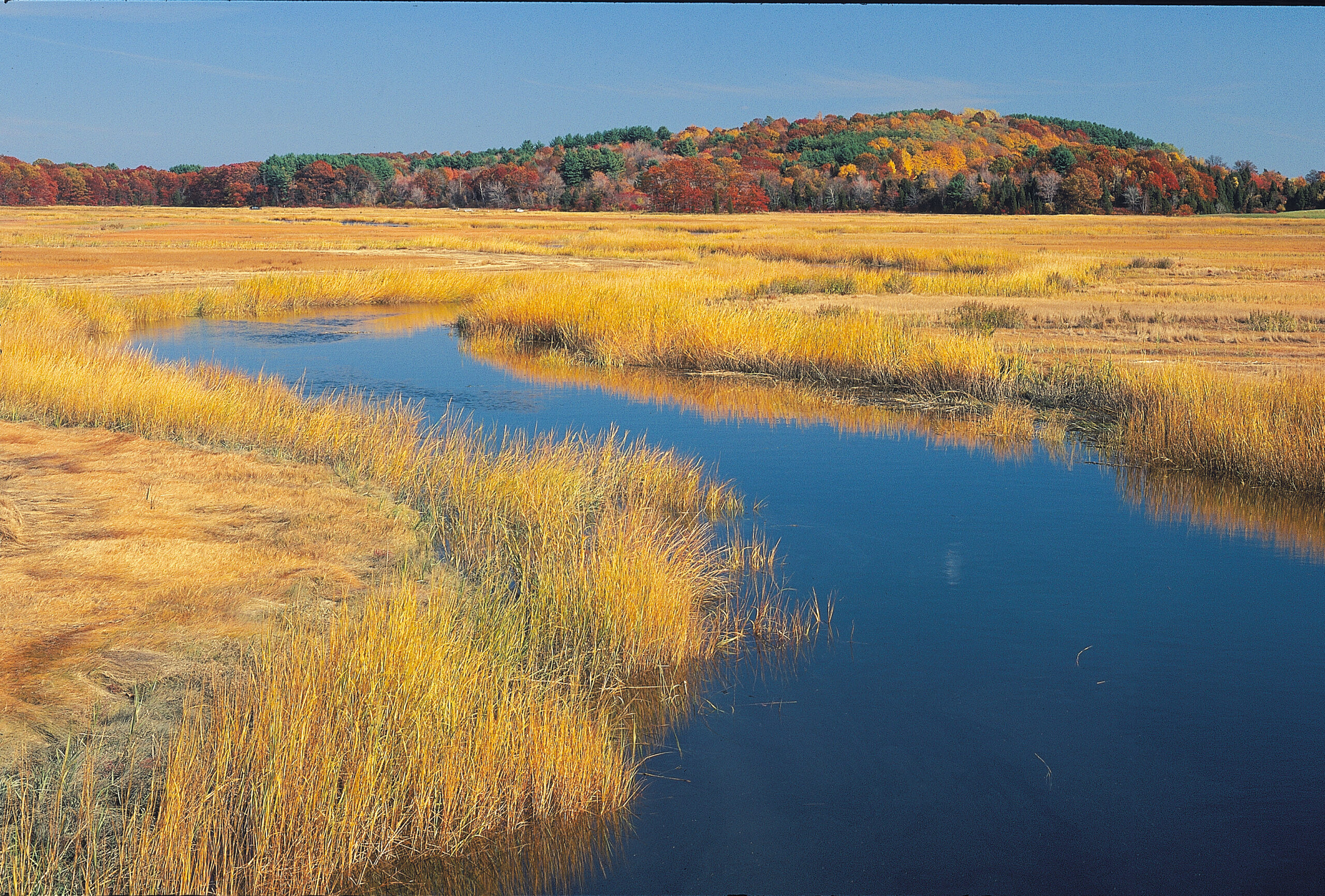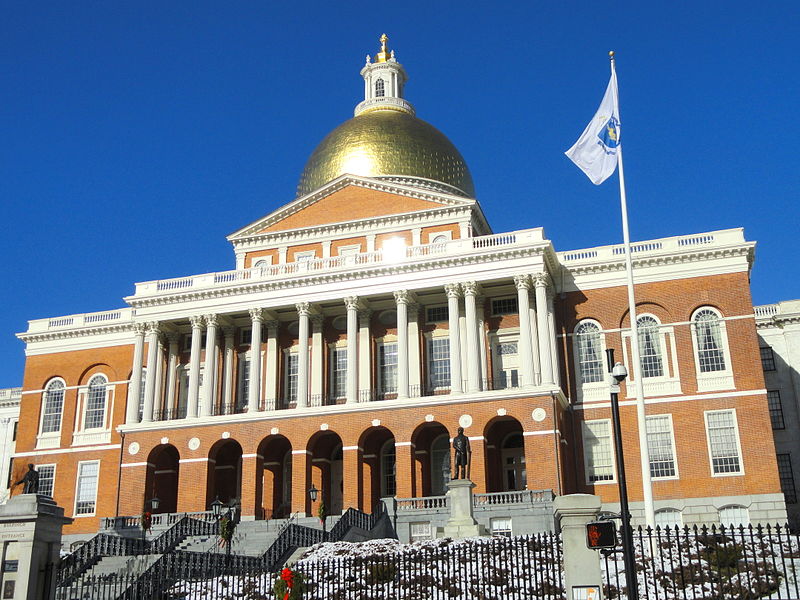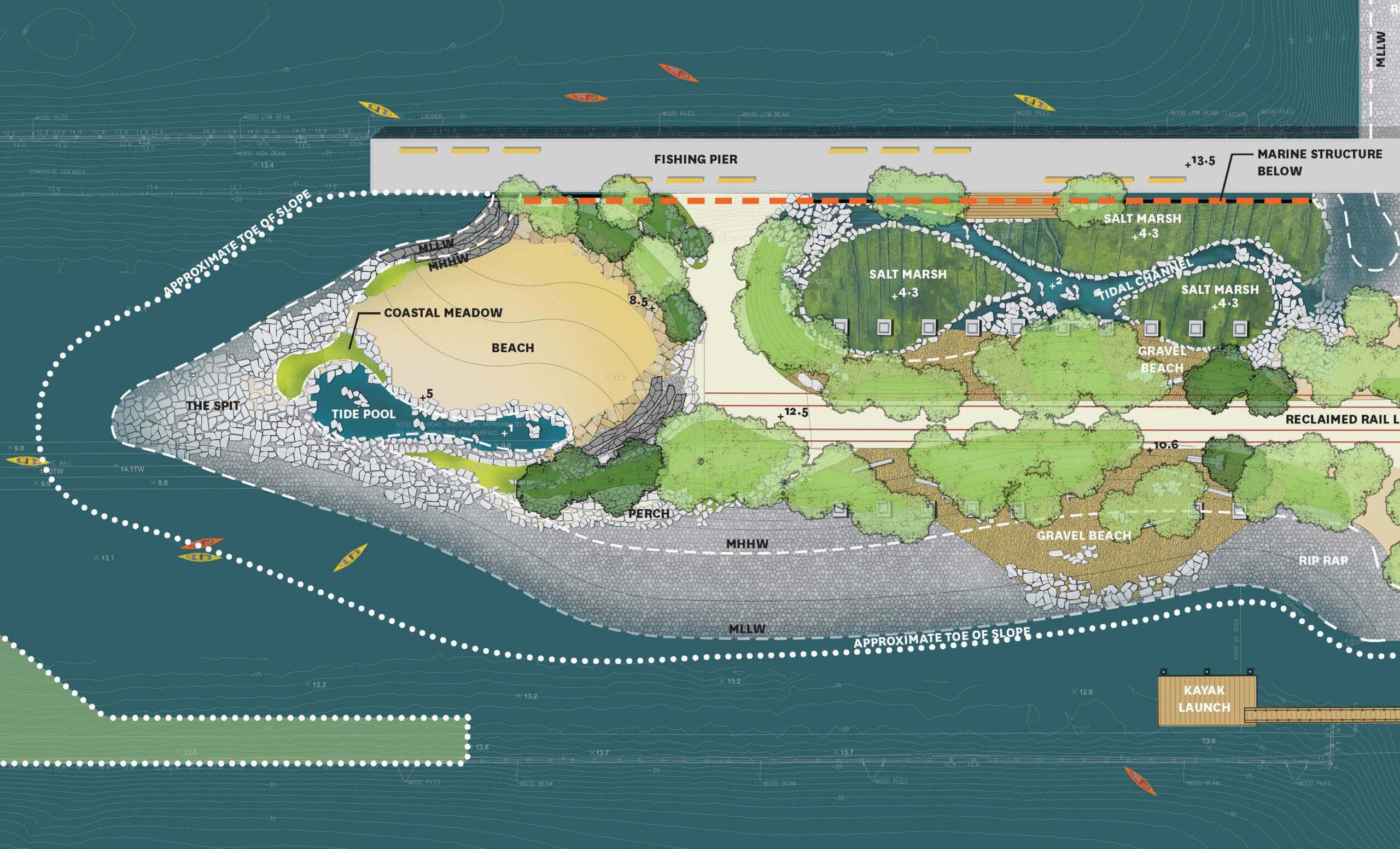Advocating for the Environment
Support from our Founders Circle donors is crucial to powering our public policy and advocacy efforts. In the past year, your support helped our government relations team secure $4 million in public funding for the construction of Piers Park III, our waterfront park in East Boston, as well as advance numerous conservation policies and initiatives in Massachusetts towns, cities, and statewide. Read on for a Q&A with Trustees Senior Director of Government Relations, Linda Orel, to learn more about our advocacy program and our plans for the year ahead.
How does government relations work at The Trustees?The organization advocates at the local, state, and federal levels, but most of my time is spent at the Massachusetts State House, securing public funding for conservation and restoration projects and advocating to enact our policy priorities to positively impact the environment.
I frequently collaborate with nonprofit partners, such as Mass Audubon, The Nature Conservancy, the Appalachian Mountain Club, and others. Public policy has an outsized impact on land conservation, ecosystem restoration, historic preservation, and sustainable agriculture. Sound legislation helps protect special places, rehabilitate important landscapes, manage climate change impacts, and further our critical work.
What are some past successes of our advocacy work?Following more than 20 years of advocacy, the state passed the Public Lands Protection Act (PLPA) last November. This codifies into law an existing policy that states when protected open space is converted to a different use, it must be replaced with land of equivalent financial and natural resource value. The PLPA helps protect communities that lack adequate open space by safeguarding natural areas to cool urban heat islands, absorb stormwater, and improve quality of life.
The Trustees and our partners also secured over $220 million in American Rescue Plan Act funds for land and water conservation and restoration and outdoor recreation priorities.
And together, we created the state’s first Office of Outdoor Recreation.
On the federal side, a major achievement last year was securing $2 million in federal funding toward the creation of Piers Park III in East Boston. Support from our state congressional delegation helped us to leverage an additional $2 million in funding from the state legislature for Piers Park III last year, as well.
What are our legislative priorities for the future?For the 2023-2024 legislative session, we have five legislative priorities:
- Flood Risk Protection Commission
The Trustees is leading a collaborative effort to create a statewide flood risk protection program to assist homeowners and tenants who are interested in selling their flood-prone property and/or need assistance with relocation, and to conserve and restore wetlands and floodplains to help neighborhoods become more resilient to climate impacts. - Streamline Wetland Permitting
The Trustees authored a new bill with Mass Audubon that would require the state to hire a coordinator to streamline the onerous permitting process for nature-based wetlands restoration, such as the salt marsh restoration project we are implementing on the North Shore. - Conservation Land Tax Incentive
Massachusetts offers a state income tax credit for landowners who donate land for tax purposes. However, there is a $2 million annual cap on the program, and a long waiting list of owners who want to donate their land for conservation purposes. We are spearheading the passage of a bill to lift the cap from $2 million to $5 million. - Environmental and Climate Bond
The current five-year Environment and Climate bond, which pays for capital projects across the state, is set to expire in 2023. The Trustees is leading a widespread coalition to redraft a new bond bill to ensure it contains funding for our collective priorities, which include capital investments in nature-based strategies for land acquisition, wetland restoration, shade tree planting, and improved forest management; agricultural preservation restrictions, climate smart agricultural practices, community gardens and urban farms; river revitalization, fish and wildlife habitat restoration, dam and culvert redesign and replacement; water quality improvements; volunteer buyouts for properties at risk of flooding; and the creation of parks, trails, campgrounds, and recreational opportunities. Equity and climate will be key focal points in the next Environmental and Climate Bond bill. - Outdoor Recreation Act
Following the creation of the state’s new Office of Outdoor Recreation, The Trustees is partnering with the Charles River Watershed Association and others to advocate for passage of legislation that would dedicate the existing sales tax on “sporting goods” to create grants for outdoor recreational projects, programs, and opportunities.
This legislation could potentially create more than $50 million annually for land conservation; park, garden, and trail creation and improvements; and programs to support outdoor recreational activities.
How can Founders Circle members get more involved with advocacy?You can visit our advocacy webpage to learn more about what we do, and check out our legislative priorities page to get more in-depth information about our efforts at the state house.
Anyone who is interested in becoming an advocate for environmental issues in their community can also contact me directly at lorel@thetrustees.org to learn more about how to get involved. Thank you!




